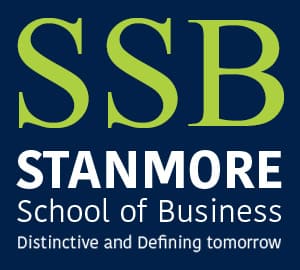Industry Success: Extended Professional Certificate in Business Improvement Techniques Impact
-- viewing nowBusiness Improvement Techniques are essential for driving growth and efficiency in today's fast-paced business landscape. Designed for professionals seeking to enhance their skills, the Extended Professional Certificate in Business Improvement Techniques Impact equips learners with the knowledge and tools to optimize processes, improve productivity, and boost profitability.
7,707+
Students enrolled
GBP 140
GBP 202
Save 44% with our special offer
About this course
100% online
Learn from anywhere
Shareable certificate
Add to your LinkedIn profile
2 months to complete
at 2-3 hours a week
Start anytime
No waiting period
Course details
This unit helps learners understand the importance of process mapping and analysis in identifying areas for improvement. It covers the tools and techniques used to map and analyze business processes, including flowcharts, swimlane diagrams, and value stream mapping. • Root Cause Analysis and Problem-Solving
This unit teaches learners how to apply root cause analysis and problem-solving techniques to identify and address the underlying causes of problems. It covers tools such as the 5 Whys, Fishbone diagrams, and Pareto analysis. • Lean Principles and Tools
This unit introduces learners to the principles and tools of Lean, including the elimination of waste, continuous improvement, and the use of visual management. It covers tools such as the 8 Wastes, Kaizen events, and the use of Kanban boards. • Business Process Re-engineering (BPR)
This unit helps learners understand the principles and techniques of Business Process Re-engineering (BPR), including the use of process mapping, analysis, and redesign. It covers the benefits and challenges of BPR and how to implement it in a business setting. • Change Management and Communication
This unit teaches learners how to manage and communicate change effectively, including the use of stakeholder analysis, communication planning, and change management models. It covers the importance of engaging stakeholders and building a culture of continuous improvement. • Performance Metrics and Measurement
This unit helps learners understand the importance of performance metrics and measurement in driving business improvement. It covers the use of key performance indicators (KPIs), balanced scorecards, and data analysis to measure and improve business performance. • Continuous Improvement and Kaizen
This unit introduces learners to the principles and practices of continuous improvement and Kaizen, including the use of Kaizen events, idea generation, and implementation. It covers the importance of creating a culture of continuous improvement and engaging employees in the improvement process. • Supply Chain Management and Optimization
This unit helps learners understand the principles and practices of supply chain management and optimization, including the use of supply chain mapping, analysis, and redesign. It covers the importance of creating a resilient and agile supply chain. • Business Improvement Techniques and Tools
This unit teaches learners about various business improvement techniques and tools, including Six Sigma, Total Quality Management (TQM), and Business Process Management (BPM). It covers the use of these tools and techniques to drive business improvement and excellence. • Project Management and Implementation
This unit helps learners understand the principles and practices of project management and implementation, including the use of project planning, execution, and monitoring and control. It covers the importance of creating a project plan and engaging stakeholders in the implementation process.
Career path
- Business Analyst - Responsible for identifying business needs and developing solutions to improve operational efficiency and reduce costs.
- Operations Manager - Oversees the day-to-day activities of an organization, ensuring smooth operation and maximizing productivity.
- Process Improvement Specialist - Analyzes and improves business processes to increase efficiency, reduce waste, and enhance customer satisfaction.
- Supply Chain Manager - Coordinates the flow of goods, services, and information from raw materials to end customers, ensuring timely delivery and cost-effectiveness.
- Quality Assurance Manager - Develops and implements quality control processes to ensure products or services meet customer requirements and industry standards.
- Project Manager - Oversees projects from initiation to completion, ensuring timely delivery, budget adherence, and stakeholder satisfaction.
- Business Improvement Techniques - In high demand due to increasing focus on operational efficiency and cost reduction.
- Salary Range: £40,000 - £80,000 per annum, depending on experience and industry.
Entry requirements
- Basic understanding of the subject matter
- Proficiency in English language
- Computer and internet access
- Basic computer skills
- Dedication to complete the course
No prior formal qualifications required. Course designed for accessibility.
Course status
This course provides practical knowledge and skills for professional development. It is:
- Not accredited by a recognized body
- Not regulated by an authorized institution
- Complementary to formal qualifications
You'll receive a certificate of completion upon successfully finishing the course.
Why people choose us for their career
Loading reviews...
Frequently Asked Questions
Course fee
- 3-4 hours per week
- Early certificate delivery
- Open enrollment - start anytime
- 2-3 hours per week
- Regular certificate delivery
- Open enrollment - start anytime
- Full course access
- Digital certificate
- Course materials
Get course information
Earn a career certificate

